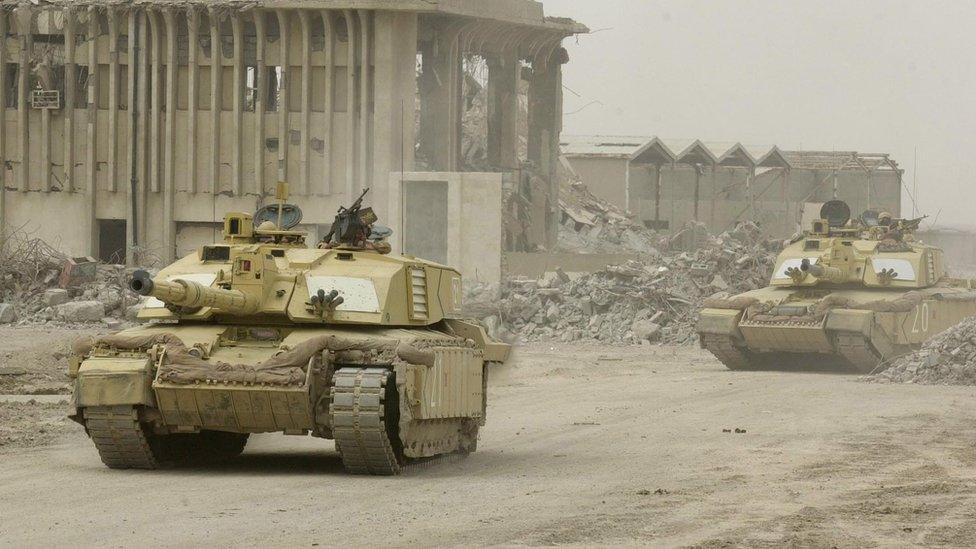Rose Gentle condemns Tony Blair over Chilcot report
- Published
Rose Gentle: 'Tony Blair responsible for murdering my son'
The mother of a Scottish serviceman killed in Iraq has condemned Tony Blair following the publication of the Chilcot report.
Rose Gentle said she wanted to look the former prime minister in the eye and ask: "Why did you send my son to be killed?"
Ms Gentle said she held Mr Blair responsible for the "murder" of her son, Gordon, in Basra in June 2004, external.
Mr Blair said he made the decision to go to war in 2003 "in good faith".
The report found that the invasion of Iraq was based on "flawed evidence".
It said the UK went to war before peaceful solutions were exhausted and military action was "not the last resort".
In a press conference after Sir John Chilcot unveiled his report, Ms Gentle said they had asked to meet Mr Blair "years ago" but he did not do so.
"This is his opportunity to come and speak to the families now", she added.
"We've proved him wrong because everything that we've said from the start has actually came out today, and I think he thought 'they're going to give up and walk away'."
In a separate media briefing, Mr Blair was asked if could look bereaved families in the eye and say he would make the same decision to go to war again.
"I look not only families in the eye, but the nation - I did not mislead, I made the decision in good faith," he said.
"But I cannot say we took the wrong decision. I took the right decision and the world is a better place for it."
Earlier, he said: "I will take full responsibility for any mistakes without exception or excuse."
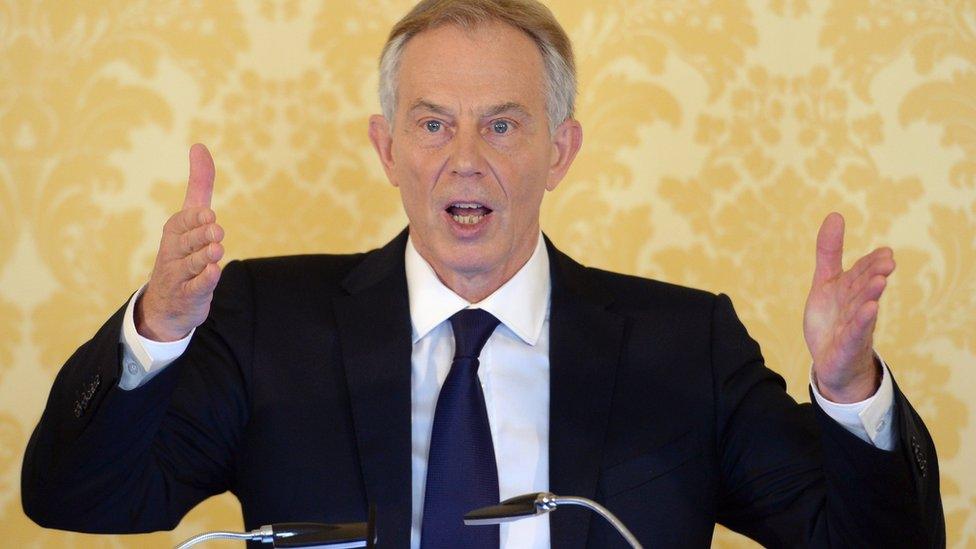
Former prime minister Tony Blair said he took the "right decision" to invade Iraq
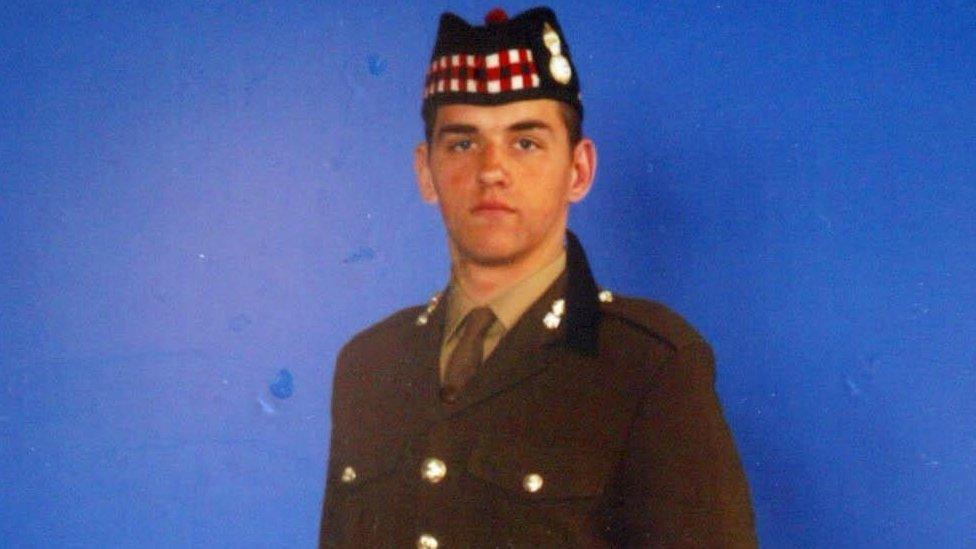
Nineteen-year-old Gordon Gentle was a fusilier with Royal Highland, 1st Battalion
Ms Gentle and other bereaved families were given three hours to go through the 2.6 million word report ahead of its official publication.
She said: "Today, what we've been hearing and what we've been reading has been really hard and I think that's why there's a lot of mothers and fathers that's been in tears today.
"A lot of us have held it back for weeks and what's been confirmed today has really gut-wrenched a lot of us."
It is 13 years since British troops crossed into Iraq on 20 March 2003, and seven years after the inquiry began its work.
The UK lost 179 servicemen and women during the campaign that followed the invasion, with 19 of them from Scotland.
The inquiry was set up in 2009 by then prime minister Gordon Brown to examine the lead-up to the invasion, from the summer of 2001, up until the withdrawal of the main body of British troops.
The report's long-awaited publication follows 130 sessions of oral evidence, with the testimony of more than 150 witnesses.
But Sir John has said from the outset he would not rule on whether the invasion in 2003 was legal in terms of international law, pledging to provide a "full and insightful" account of the decision-making process.
First Minister Nicola Sturgeon told the BBC the Chilcot report was "damning" of Mr Blair and the decision-making process that led to the war in Iraq.
She added: "What I think is absolutely clear at this stage is there has to be some sense of accountability… given the consequences of the Iraqi war are still being felt by Iraq and the Middle East."
Her predecessor, Alex Salmond, said the conclusions of the report were "excoriating" of Tony Blair.
He added: "In the days, weeks and months ahead, the intimate detail of this report will only implicate further a former prime minister who recklessly committed the country to war without collective judgement, and personally failed to ensure there was a plan for delivering a future for the people of Iraq.
"After such carnage, people will ask inevitable questions of was conflict inevitable and worthwhile? The answer from Chilcot is undoubtedly no. And who is responsible? The answer is undoubtedly Tony Blair. There must now be a consideration of what political or legal consequences are appropriate for those responsible."
Prime Minister David Cameron said the government needed to learn the lessons from what went wrong in the build-up to Britain joining the invasion of Iraq.
Scottish military deaths during Iraq campaign
Ahead of publication, the families of many of those who died predicted the inquiry as a whitewash.
They included Diane Douglas, the mother of Lance Corporal Allan Douglas, from Aberdeen, who was shot while on a routine patrol in 2006, external at the age of 22.
She told BBC Scotland: "I'd like to see Blair and [US President George W] Bush accused of putting us in to an illegal war. And for Blair to actually apologise for our families being destroyed.
"One hundred and seventy nine families have been destroyed because they went to Iraq. And to this day, Iraq is actually worse than it was 10 years ago."
Series of delays
Sir John had originally hoped the report would be ready within two years of starting work in 2009, but it was hit by a series of delays.
The most serious has been wrangling between the inquiry and the Cabinet Office over the de-classification of hundreds of official documents - most notably communications between Mr Blair and President Bush.
That was followed by a further period of delay while the inquiry carried out the so-called Maxwellisation process - allowing individuals facing criticism the chance to comment before the report was finalised.
- Published6 July 2016
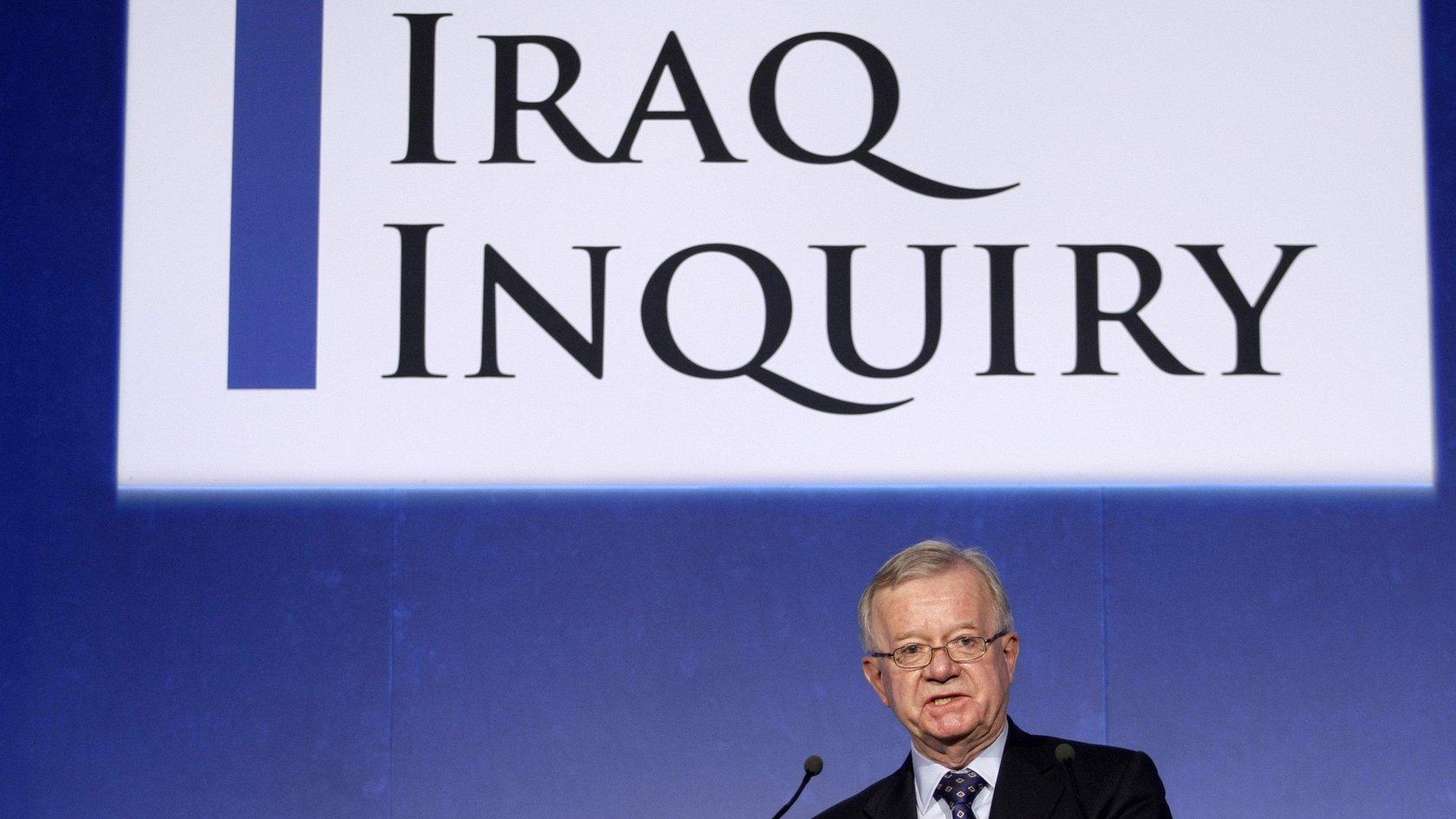
- Published6 July 2016
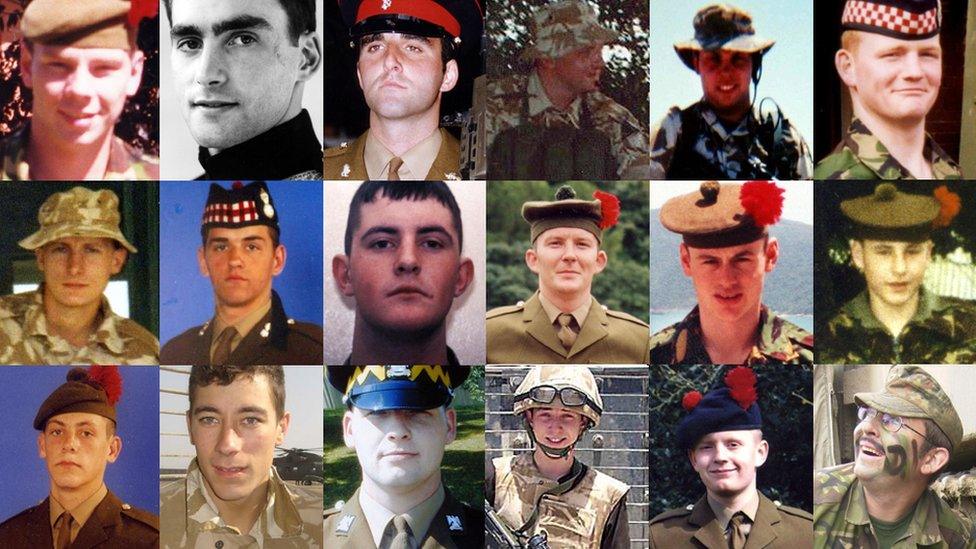
- Published14 April 2016
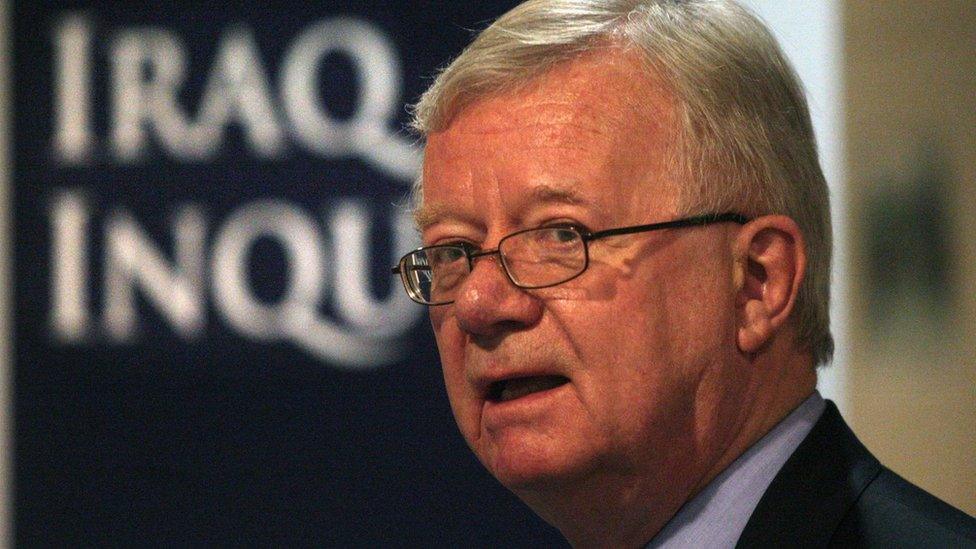
- Published5 July 2016
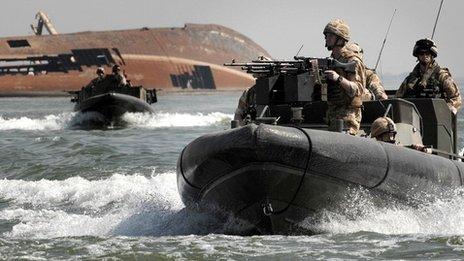
- Published29 October 2015
